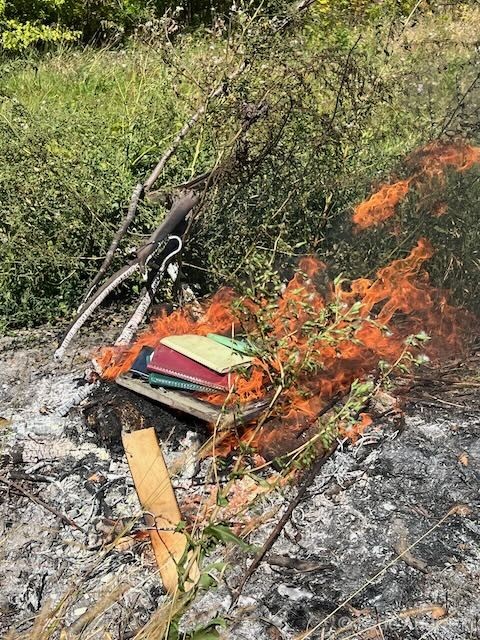
I didn’t know I was going to pitch my email notebooks until Bruce said he was going to burn the brush pile because the wind was from the right direction, away from our house, so the fire would face our “pollinator patch” and our quite green hayfield and not the neighbor’s the dried soybeans. Often Bruce said that he wouldn’t be popular with the neighbors if the wind took his fire to their corn or beans.
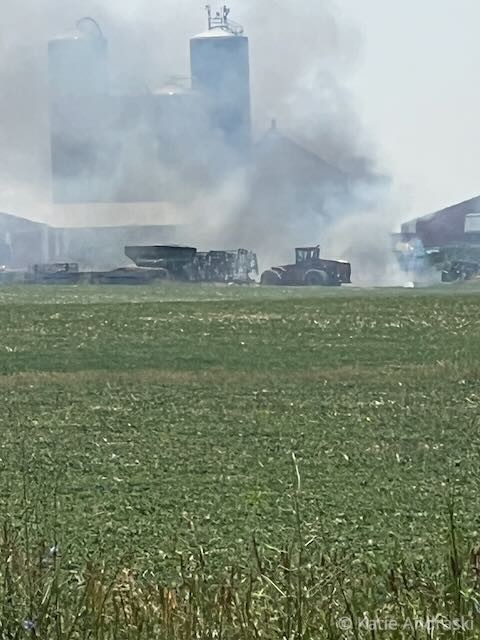
This summer our neighbor’s burn pile took off trotting across his field. We could hear the fire crackling like hooves on pavement. (His neighbors brought a giant tractor over and the Kirkland fire department brought their fire truck which sprays water from the front bumper to quell a field fire.) So we know how fires can get loose. Bruce dragged the long hose from our hydrant to keep the fire in place.
Bruce lit a good fire. Not too big, not smoldering, nice and hot.
For several years, I have wanted to crack open the binders, nearly ten feet worth, lined on the closet floor. The weight of all that paper weighed on me, overwhelmed me. I’d read about how it’s a good thing to dispose of your stuff before you die. But I didn’t have the drive even pull one binder out. Year’s ago I’d been encouraged to save letters as a kind of journal, something I’d done since I was in high school. I continued the practice by saving emails. Sometimes I wanted to document conversations to make sure I knew what I said, and what they said. I kept them as a buttress against the dreadful blank page.
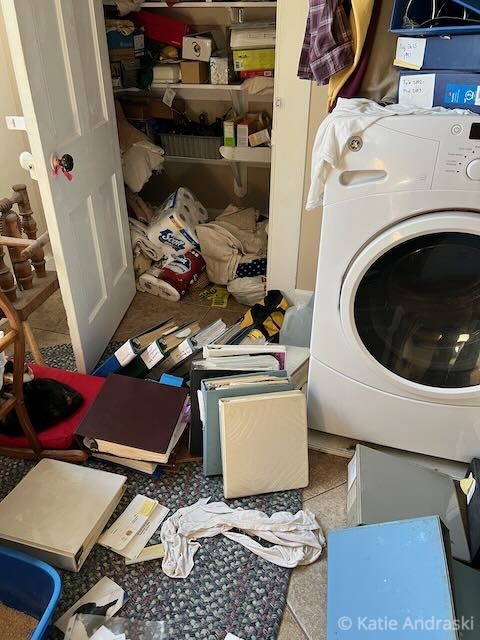
They were a sort of “museum of me.” If I’d become a well-known writer, worth writing about, some school might put them in their archives. But I have not become well-known. My novel wasn’t even significant enough to be crawled over to educate the AI called Books3. (All that desire to be a well published writer drove me in a different direction—writing here on Substack, living a quiet life.)
Those notebooks held other people’s thoughts and a record of my years long, complaining walk through grief. I am not that person any longer. As I cracked them open and stuffed pages in my paper bag, I thought about Paul’s letter to the Philippians where he said “forgetting what lies behind and straining forward to what lies ahead. I press on to the goal for the prize of the upward call of God in Christ Jesus” (Phil 3: 13 – 14, ESV).
Because it’s too painful to see how my complaints and behaviors repeat, I don’t read that year’s journals around New Year’s. When I’ve filled out all the pages in one, I put it on the shelf and open a new one. The temptation to stop and read these emails, to pick and choose what to save, and what to pitch overwhelmed me. I write so I don’t forget. I dreaded the idea of throwing out memories, but maybe somethings need to be forgotten.
First I flipped through twenty years of day timers to make sure there were no precious notes, and piled them in my arms and walked them downstairs. So many tasks printed out in assorted colors from when I had the structure teaching gave and accomplished a lot. I stepped up to the fire and tossed them on top. The flames caught them quickly. The covers melted.
When I opened the first binder, I stopped. I looked at an email from Aunt Elaine, my beloved aunt, who was my hero when I was a girl. She loved horses and she lead her husband, John to Jesus when they were dating. Our youth group looked up to how godly they were. But our relationship broke over an embittered email, a scream of grief, I sent a few months after my brother died. A few years later, her daughter Jennifer mediated between us, with a gentle touch. So now these emails glimmered with love as we shared news. But if I stopped and read, the fire would burn out and I’d still have thousands of pages cluttering the bottom of the closet.
I was struck by the pages and pages of emails from friends who aren’t friends any more. Some have since died. But instead of feeling the loss, I felt gratitude that these people supported me through those dreadful years. There was an even exchange in my letters to them, theirs to me.
I felt how deeply I was loved.
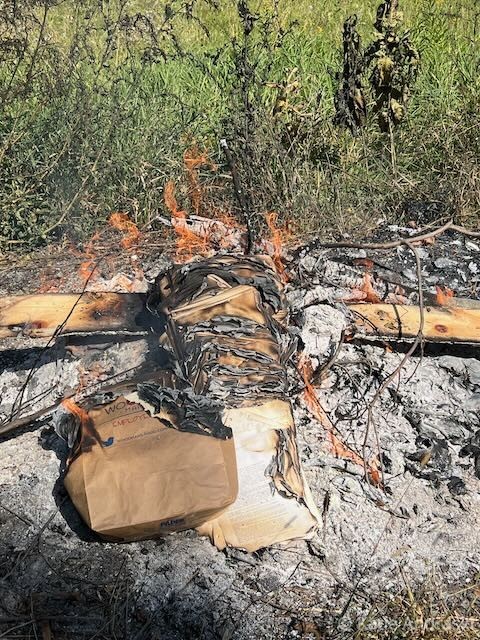
But it was time to let go of those records, that woman who was good at venting, who wore people out. I don’t know if venting mostly opened the wound, made it worse or brought relief and healing. I am not that person, at least not right now. I have learned it takes too much energy to write out my complaint. I learned I could just plain not go there. I have learned what a gift it is to listen to other people’s stories and forget about mine. And there is always God I can talk to like I would a girlfriend. I have seen how he has heard my complaint and gently fixed things.
Lest you think all my paper got pitched, I also found a notebook with emails from writers like Tony Doerr, and Kent Myers and Jonis Agee and Sara Gruen. Such gracious writers to answer me. I kept those to look at later. I kept the notebook with Anne Brashler’s letters, a woman who’d mentored me in the years right after my brother died. She was the editor of Story Quarterly, and invited me to a writer’s group in the north suburbs, every Monday night. Often I returned home after midnight. I kept my correspondance Rachel Simon, that began when I taught her memoir, Riding the Bus with My Sister.
I’d begun a correspondence with Bruce Proctor when I was in high school, so there is a record of my thoughts from those years. His family became our second family after my brother died, and they too, patiently listened to my hurt. And I have my mother’s letters to my father when they were dating, and her letters to me and a few from my brother.
I also kept old manuscripts from my novel because there is material that I revised out of the current version that might be the basis for the second novel in series. There are binders in my office full of essays and prose poems and novel drafts.
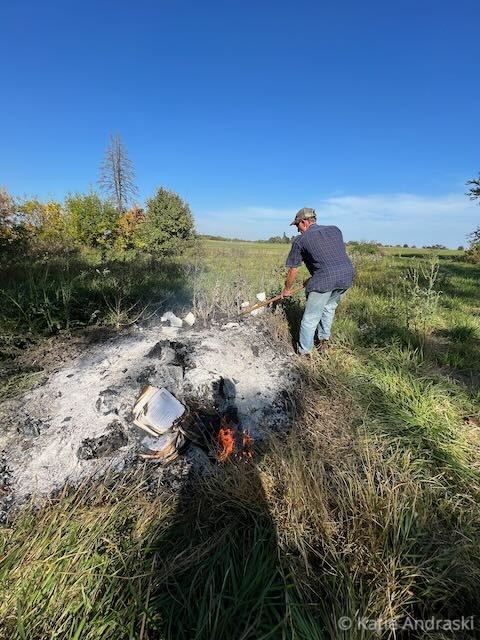
At any rate, I shoved emails into paper bags. I carried them downstairs and threw them on the fire. I walked back upstairs and cracked open more notebooks and shoved paper into the bags. My legs ached from walking two ten-pound sacks to the fire. When my bag didn’t land squarely on top if the fire, I took the pitchfork and shoved the papers back into the fire. A few pages floated up and landed in the weeds.
My spiritual director suggested when I do this I could say a prayer of blessing and thanks. I didn’t have a liturgy, so I stood by the ashes, the flames hot. Bruce stood by.
“Thank you for the date books, the spaces to write down what to do, sometimes in colored pens, magenta or green or turquoise or orange because it was fun. Thank you for the spaces to write appointments and notes I wanted to keep for the week.
“Thank you for the correspondence with these people who loved me enough to reply back, for the effort on their part to listen to my complaint, my longing, my hope. Thank you for their kindness, for all these words. Be near everyone of these people, living and dead. Thank you for this day, this fire, for the smoke, for being able to forget what is behind and press forward.” I said these words or words like them.
The fire crackled and smoke floated up. I think about how I used to have students imagine sitting by a fire, next to a lake, after a long day of hiking, telling stories, that ancient human habit. I’d just lifted my stories to the heavens, in smoke and ash.
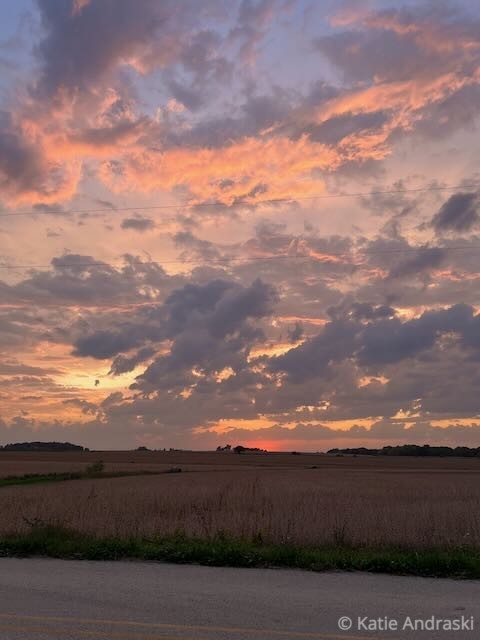
If you’d like to receive these essays regularly, you can sign up here.
